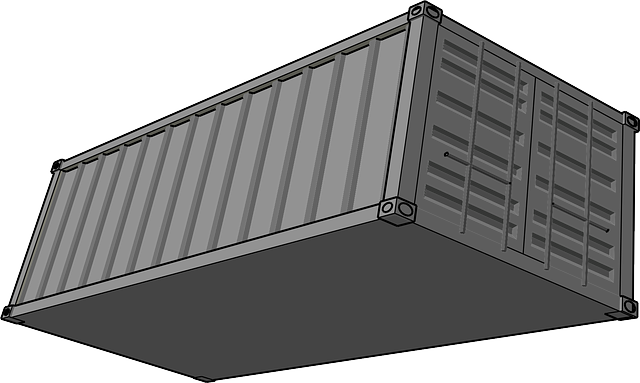Heavy-duty trucks require specialized insurance covering unique risks like mechanical failures and cargo damage, with rates determined by vehicle age, use, and safety features. Strategic planning, expert partnerships, clean driving records, and efficient cost management are key to securing affordable coverage, emphasizing the importance of tailored policies for commercial trucking operations.
In today’s competitive trucking industry, securing affordable heavy-duty truck insurance is crucial. Understanding the unique considerations of specialized truck insurance is key to navigating this complex landscape. This article delves into the factors shaping competitive rates, offering valuable insights for fleet owners seeking optimal coverage. We explore strategies to enhance affordability and guide readers through various policy types and customization options available in the market. By understanding these aspects, operators can make informed decisions tailored to their specific needs.
- Understanding Heavy-Duty Truck Insurance: Unique Considerations
- Factors That Impact Competitive Rates for Specialized Truck Insurance
- Strategies to Secure Affordable Coverage for Your Commercial Fleet
- Navigating Options: Types of Policies and Customization Availability
Understanding Heavy-Duty Truck Insurance: Unique Considerations

Heavy-duty trucks, due to their size, power, and unique operational risks, require a specialized type of insurance—a far cry from standard auto policies. These vehicles often haul heavy cargo over long distances, navigating diverse road conditions and demanding environments. As such, insurers consider factors like vehicle age, mechanical condition, driving history, and the nature of the cargo being transported when calculating premiums.
Compared to regular trucks or cars, specialized truck insurance accounts for specific perils common in the heavy-duty sector. This includes comprehensive coverage for mechanical failures, loading/unloading accidents, and weather-related incidents—all while ensuring liability protection against potential damages, injuries, or legal claims arising from operations. Understanding these unique considerations is key to finding competitive rates tailored to the specific needs of heavy-duty truck owners and operators.
Factors That Impact Competitive Rates for Specialized Truck Insurance

Heavy-duty trucks and their unique operational needs require specialized insurance coverage, often with varying rate structures. Several factors play a significant role in determining competitive rates for this niche market. One of the primary considerations is the vehicle’s use; whether it’s for local hauls or long-haul transportation across states, each scenario carries distinct risks. For instance, trucks involved in interstate travel face higher exposure to accidents and weather conditions, impacting premium costs.
The type and value of cargo carried is another critical aspect. Specialized truck insurance rates often reflect the nature of the goods being transported. Hazardous materials, for example, demand additional coverage due to their inherent risks, leading to elevated premiums. Moreover, the age and condition of the vehicle, along with its safety features, can influence rates. Insurers assess these factors to underwrite policies effectively, ensuring both profitability and providing adequate protection for heavy-duty truck operators.
Strategies to Secure Affordable Coverage for Your Commercial Fleet

Securing affordable coverage for your commercial fleet can be a complex task, but with strategic planning and the right approach, it’s achievable. One key strategy is to partner with specialized truck insurance providers who understand the unique risks associated with heavy-duty vehicles. These experts can offer tailored policies that account for factors like vehicle type, usage, and safety record, resulting in more competitive rates.
Additionally, maintaining a clean driving record and regular fleet maintenance are essential. Safeguarding against accidents, violations, and mechanical issues through rigorous training programs and well-kept logs demonstrates responsible operation, which insurers often reward with lower premiums. Exploring different coverage options, comparing quotes from multiple carriers, and taking advantage of available discounts can also significantly impact the overall cost of your specialized truck insurance.
Navigating Options: Types of Policies and Customization Availability

Navigating the world of heavy-duty truck insurance can seem daunting, but understanding your options is key to securing the best rates and coverage for your specific needs. One of the first things to grasp is that specialized truck insurance exists to cater to the unique risks associated with commercial trucking. These policies are designed to cover a range of potential incidents, from vehicle breakdowns to cargo damage or accidents involving other vehicles.
The beauty of specialized truck insurance lies in its customization. Insurers offer various policy options tailored for different types of trucks, driving jobs, and business models. You might choose between comprehensive coverage, which includes protection against most risks, or a more tailored option focusing on specific concerns like cargo loss or liability related to your trucking operations. This flexibility ensures that you pay for the exact coverage you need, making it an effective strategy for managing competitive heavy-duty truck insurance rates.
In navigating the competitive landscape of heavy-duty truck insurance, understanding the unique considerations and factors that influence rates is key. By recognizing the importance of specific policies and customization options for specialized truck insurance, fleet owners can strategically secure affordable coverage. Embracing these insights empowers businesses to make informed decisions, ensuring they receive the best value for their investment in their commercial fleet’s protection.
